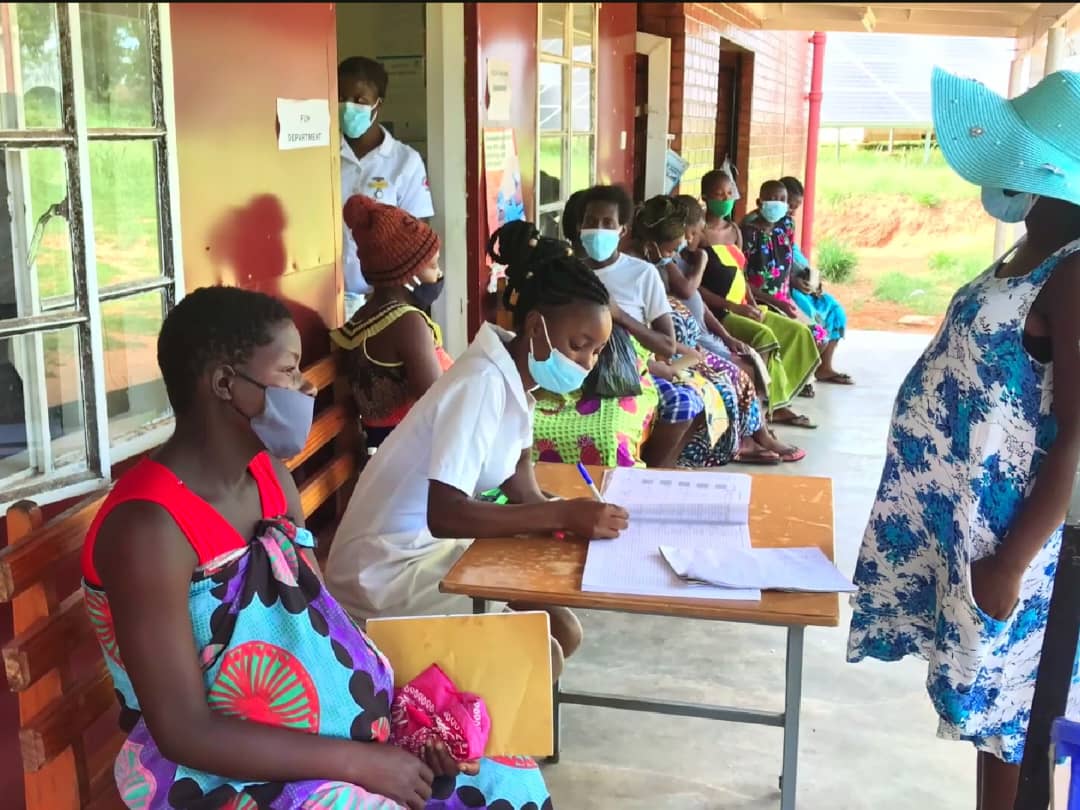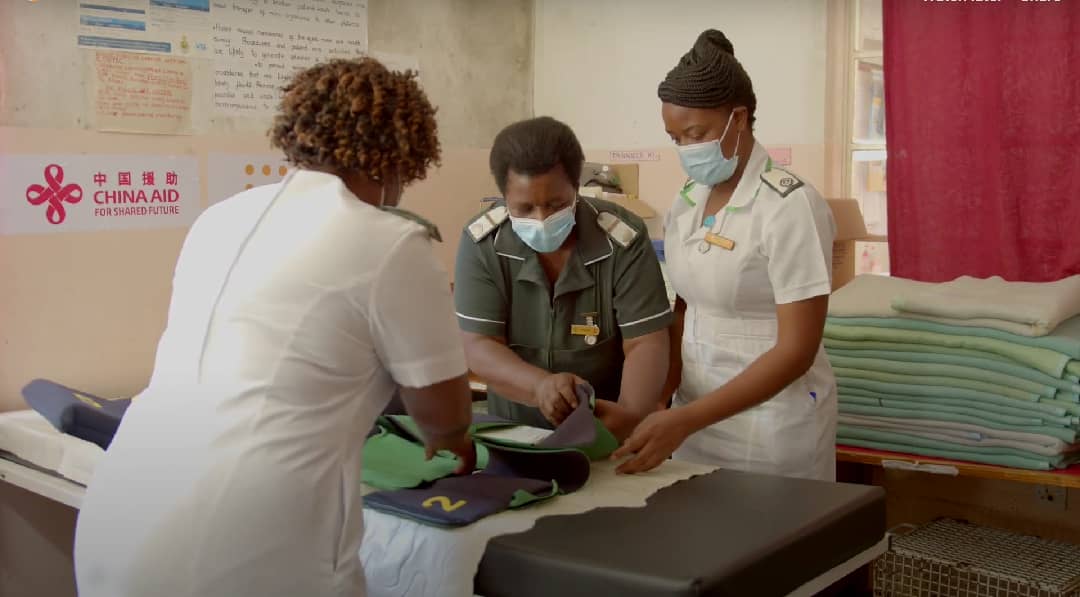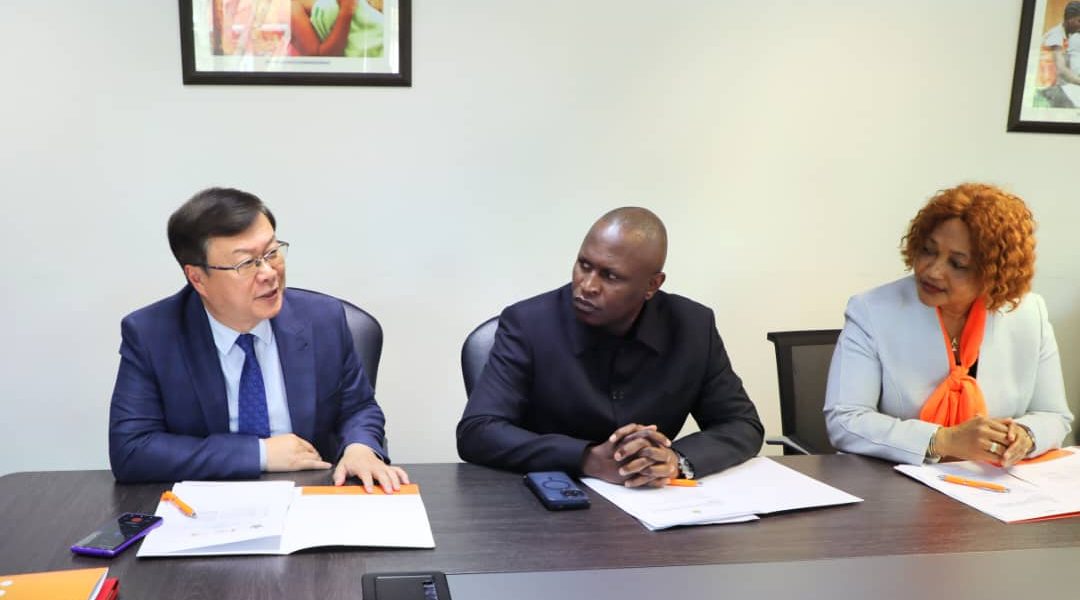The China Global Development and South-South Cooperation Assistance Fund assistance of US$1.24 million has strengthened emergency obstetric and neonatal care (EmONC) in the tropical cyclone-affected districts of Chipinge and Chimanimani.
The project significantly contributed to reducing Zimbabwe’s maternal mortality rate, which dropped from 462 to 363 deaths per 100,000 live births.
Under this initiative, 94,643 women accessed modern family planning methods, 10,862 pregnant women benefited from the refurbished maternity waiting homes.

Speaking at signing of completion certificate of the health assistance project for women and girls in Zimbabwe affected by tropical cyclone Idai that cooperated with UN Population Fund (UNFPA ) and the Zimbabwean Ministry of Health and Child Care, Chinese Ambassador to Zimbabwe, H.E. Zhou Ding, said that nearly 300 health workers received specialized training under the programme.
Through this initiative, over 60,000 life-saving delivery services were provided to mothers in need. In addition, three Maternity Waiting Homes (MWHs) were refurbished.

Ambassador Zhou described the completion of this project as a positive milestone. Ambassador Zhou said:
Led by UNFPA and supported by the China Global Development and South-South Cooperation Assistance Fund, this project has strengthened emergency obstetric and neonatal care (EmONC) in the cyclone-affected districts of Chipinge and Chimanimani.
The signing ceremony was therefore not just a celebration of the project’s completion but a tribute to the profound impact collectively made. Said Ambassador Zhou:
It has proved that collective action and solidarity are the most powerful tools in overcoming challenges.
These achievements transcend mere statistics; they represent lives saved, families strengthened, and communities empowered.
This project aligns with the UN Sustainable Development Goals, the Chinese Government’s Global Development Initiative, and Zimbabwe’s Vision 2030.
The project’s success aligns with both the UN Sustainable Development Goals and the Chinese Government’s Global Development Initiative, as well as Zimbabwe’s Vision 2030.
Health is not a privilege—it is a fundamental human right, the foundation of a dignified life and the bedrock of a thriving society.
When we invest in healthcare, we are investing in people, and in a more equitable future for all.
UNFPA Zimbabwe Representative Miranda Tabifor praised and thanked the Chinese Government for its support that helped mitigate and prevent severe maternal health risks. She said:
We truly appreciate China for this support, which has contributed to the impact we’ve witnessed. We remain committed to ensuring the health and well-being of women in Zimbabwe remains a priority.
Through this generous support, we addressed the challenges through a three-pronged approach: provision of sexual and reproductive health equipment and medication, training health workers in emergency obstetric care, and refurbishing maternity waiting homes.
The program supported over 10,000 pregnant women who used these homes to deliver safely.
As UNFPA, we commend the Government of China and believe the gains from this project have been life-transforming. It would be beneficial to explore scaling up this success.
Zimbabwe’s Health and Child Care Deputy Minister Hon. Sleiman Kwidini commended the Chinese Government for supporting the initiative during a critical time. Said Kwidini:
We are witnessing the closure of a project that began during Cyclone Idai, a time when women and girls were especially affected in terms of access to sexual and reproductive health services.
The Government of China extended its support through UNFPA to implement projects such as the refurbishment of clinics and the modernisation of mothers’ waiting shelters.
These waiting homes are vital to our Ministry’s efforts to reduce maternal mortality rates, particularly in rural areas where women face challenges such as long distances to health centres.
The construction and refurbishment of these homes encourage women to wait near health facilities before delivery, where skilled health personnel can attend to them. Our goal is to reduce maternal mortality to zero.
That is why we are grateful for China’s assistance—both during Cyclone Idai and COVID-19—in helping prevent avoidable maternal deaths.
The project began in 2020 and concluded in 2024. Of the 63,327 deliveries, 8,357 were successful Caesarean sections.
Recently, Zimbabwe’s Cabinet approved an agreement between China and Zimbabwe on paired hospital cooperation. Zimbabwean Minister of Information, Publicity and Broadcasting Services Jenfan Muswere addressing a post-Cabinet media briefing, said the agreement will establish a cooperative relationship in respiratory and critical care medicine between Zimbabwe’s Parirenyatwa Group of Hospitals and China’s Hunan Provincial People’s Hospital.
In addition, the 22 Chinese medical teams dispatched to Zimbabwe over the past 40 years also further exemplify China’s commitment to translating solidarity into tangible outcomes for Zimbabwean communities.
As China and Zimbabwe celebrate the 45th anniversary of their diplomatic ties, this impactful health cooperation project stands as a testament to their enduring partnership rooted in mutual respect and shared development.
Beyond bilateral cooperation, it exemplifies how South-South cooperation can serve as a catalyst for global health equity, offering a replicable model for addressing climate-induced vulnerabilities in developing nations.
China-Zimbabwe solidarity and partnership continue to redefine what South-South cooperation can achieve: a world where no life is deemed less valuable, no community is left behind in crisis, and collective action turns shared challenges into opportunities for common progress.
In an era marked by rising global uncertainties, this project underscores the power of solidarity—it reminds us that when nations align with the principles of the UN Charter and the Global Development Initiative, they can build a more resilient, inclusive future for all.
This legacy of collaboration not only strengthens the bond between two nations but also sends a resounding message: health is a universal language, and investing in the well-being of women and children is an investment in the very fabric of humanity.
This story was contributed by Brenna Matendere



Back to top